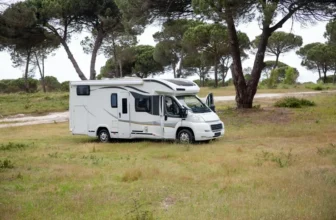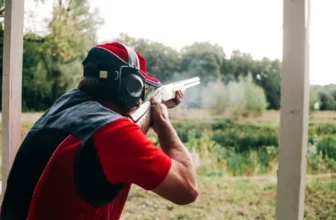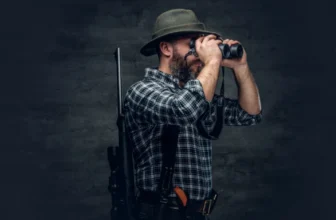Hunting in Germany
Hunting in Germany is a very serious business. Those who own or lease hunting business have immense responsibilities. They must control predators, pay farmers for crop damage caused by game, re-establish the population of the area and meet harvest quotas.
They also take a number of courses and tests to prove their proficiency. Despite these requirements, they are a tight-knit community.
Hunting Permits and Licenses
While hunting remains a controversial pastime, with discussions making rare forays into the mainstream media. Germany’s green lands provide the perfect setting to get back to basics and connect with nature. However, those hoping to hunting a deer or two may be surprised to learn that a rifle isn’t a simple accessory to pack. When traveling overseas as would-be hunters need to undergo a rigorous series of training courses to obtain a German hunting license.
You can visit here for more information about the hunting licence and Falconer Licence Germany on Hunters-world.de in Germany
How to Become a Falconer with Falconry License in Germany
Engaging in falconry in Germany is contingent upon holding a valid falconry license. This license is also a prerequisite for the ownership of native raptors for falconry purposes.
The falconry examination encompasses four key areas:
Raptor Science: This section imparts foundational knowledge about the habits and habitats of relevant raptor species, with an emphasis on the protection of these birds.
Care and Management of Birds for Falconry: Aspiring falconers learn how to properly care for, feed, and provide suitable conditions for birds used in falconry. These aspects are pivotal for success in falconry.
Conducting Falconry: This segment covers the planning and execution of falconry activities. It includes the handling of birds, employing dogs or ferrets, and proper treatment of the captured quarry.
Legal Foundations of Falconry: Here, the legal framework surrounding falconry is elucidated, encompassing raptor protection, species preservation, and animal welfare. Regulations pertaining to the acquisition and trade of falcons and raptors are also addressed.
The falconry training offers a structured approach to this ancient art form, imparting essential knowledge and skills to responsibly and lawfully engage in falconry activities.
Gun Licences
Those who wish to own hunting guns in Germany need to obtain a weapons possession card, and a weapon licence. The first allows the owner to possess a gun and transport it unloaded in a secure case, while the second grants the owner permission to carry a firearm. Collectors, for example, only need the first license. Hunters require both, along with a hunting permit.
To get the hunting gun license, candidates have to prove they are 18 years of age and pass a background check. They are also judged on their trustworthiness and personal adequacy. Those who are automatically barred include convicted criminals.
Hunting gun owners also have to have liability insurance coverage in the amount of at least 1 million euros. They must also be able to demonstrate that they have the necessary expertise. A special license is granted if the holder submits a certificate from an association of traditional marksmen stating that the gun is needed to maintain a certain tradition.
Despite these restrictions, Germany has one of the highest rates of gun ownership in the world, also one of the lowest rates of gun-related deaths. The law was last reformed in 2009 following the massacre of 15 students at Winnenden.
Hunting Seasons in Germany
The German hunting season is long and offers a game roster wider than most Americans could imagine. The season starts with roe deer on May 1st and extends until January 31st.
It also includes hunts for fox, hare, rabbit, and pheasant; as well as quail and woodcock. German hunters have a deep-rooted sense of pride in their sport and are very strict on hunting rules.
In fact, it is not uncommon for hunters to be told by a guide or hunting buddy that you cannot bring a semi-automatic weapon on a drive hunt. The reason is that they are not to help the hunters meet their quotas for the season.
One of the reasons hunting in Germany is becoming so popular is because it is a great way to escape the stress and hectic pace of urban life. Young professionals, especially in corporate management positions, are finding that escaping to the forest to pursue wild game is a way to relax and get more relationship with friends.
In a German deer hunt, you will find that the animals are much bigger than those in the United States, and many hunters bring high-powered rifles to make sure they get their prey. In addition, there is a strong tradition of respect and protocol when killing an animal. A good example of this is the Last Bite, which is practiced in Germany, Austria, and some Eastern European countries. This ritual involves laying the carcass on a bed of leaves and placing a sprig of grass in its mouth as a sign of respect and to celebrate the successful hunt.
Restricted Areas for Hunting
In Germany, unlike the United States, most hunting is not carried out on public lands and instead, hunters are assigned or lease a particular area. In turn, they must pay farmers for crop damage caused by their game animals, control predators, prevent the spread of diseases such as rabies, and bovine tuberculosis, monitor fox activity, and hunt them only when it is legal to do. So, maintain the integrity of the land and provide the landowner with the amount and type of game specified in their hunting agreement.
As such, German hunters are held to a high standard of ethical and educational standards as well as an extremely demanding hunting course that is usually three months long, and includes disease recognition, and field dressing. In addition, hunters must successfully complete a written and practical exam.
Those who pass the exam receive a hunting license. The German hunting exam is an incredibly rigorous one that mirrors the British system of DMQ level DSC2 and has a relatively high failure rate. The written exam covers the book work from the 14 weeks of instruction and the hands-on practical test involves the shooting of pheasants, woodcock, and capercaillie, as well as roe deer. In order to qualify, shooters must have at least a single-shot match rifle of a specific caliber.








